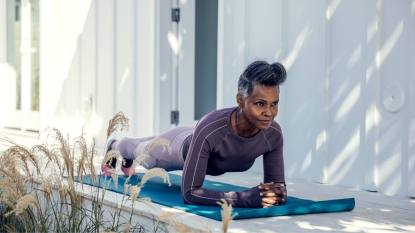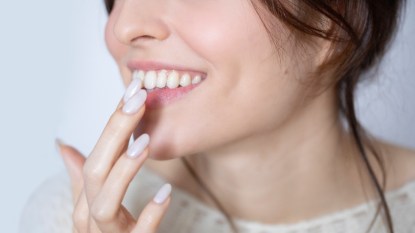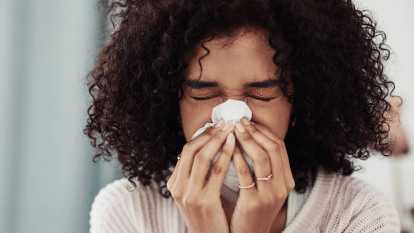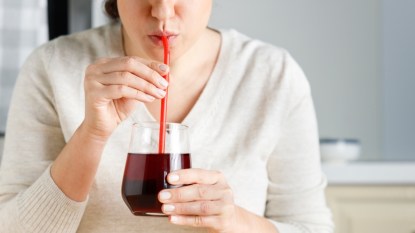Doctors Share 3 Easy Tips on How To Prevent Skin Cancer
Shield your skin against the sun's harmful rays with these simple strategies.
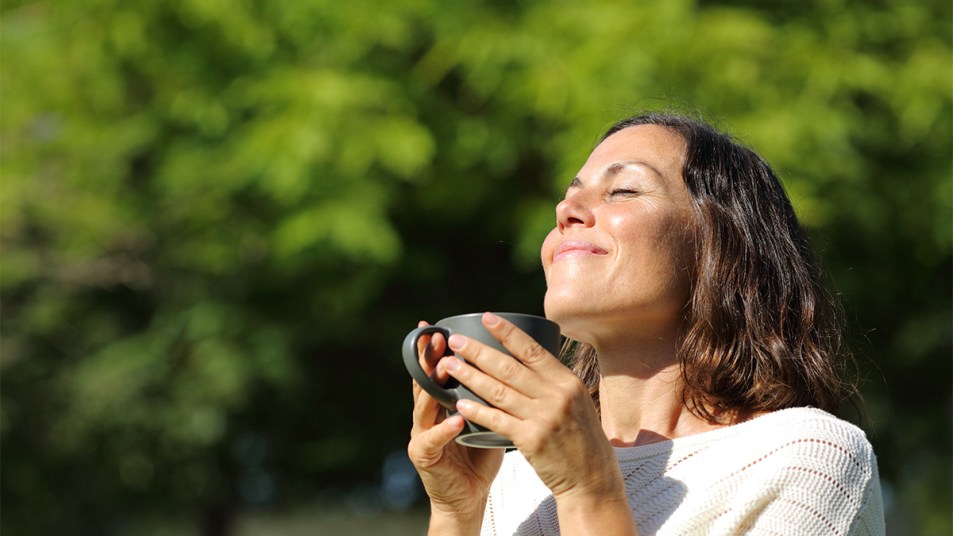
For decades, we’ve been told to don long sleeves, seek the shade, and slather on sunscreen to ward off skin cancer. The problem with these recommendations? In 2014, the US Surgeon General’s “Call to Action to Prevent Skin Cancer” revealed that shade doesn’t shield all UV rays if it’s not blocking the sky, and that certain types of clothing provide better UV protection over others. While sunscreen is still helpful for preventing skin aging and cancer, 2022 research from the Environmental Working Group discovered that 75 percent of 1,850 sunscreen products contained ineffective ingredients. Sunscreen can also be less effective if you’re not applying it in the right areas.
Research out of the University of Liverpool finds that most adults miss the area between the inner eye and the nose. “We also tend to overlook the ears and eyelids,” David J. Leffell, MD, chief of the skin cancer and melanoma unit at Yale School of Medicine, says. Dr. Leffell sees many cancers develop as a result of this sunscreen application mistake.
To get the best protection without chemicals, which are absorbed into the skin, he recommends using mineral sunscreen formulations that contain zinc oxide or titanium dioxide. According to dermatologist Michele Green, MD, these types of sunscreens reflect light like a mirror to protect the skin. Want to learn other strategies to bolster your protection from the sun’s harmful rays? Keep reading for more doctor-approved tips for how to prevent skin cancer.
The Best Foods to Eat: Tomatoes
Need another reason to dig into tomatoes? Well, previous research suggests that lycopene, the compound that gives this in-season favorite their red hue, neutralizes the sun’s harmful UV rays when they hit the skin. It’s most effective in cooked tomatoes, notes Dr. Leffell, who says pizza with tomato sauce is a delicious way to get your fill. In fact, a small study published in The Journal of Nutrition found that subjects who regularly ate about 2 tablespoons of tomato paste a day were 40 percent less likely to be sunburned after 10 weeks than those who didn’t eat it. To maximize the benefits, Dr. Green suggests opting for red sauce with olive oil. The reason: Research published in the Asia Pacific Journal of Clinical Nutrition found that olive oil helped boost lycopene absorption—an effect that’s associated with decreasing skin cancer risk. You can try other lycopene-rich foods such as watermelon, grapes, and peaches to get your daily dose of this antioxidant.
The Best Drink to Sip: Caffeine
Your coffee habit doesn’t just put the pep in your step: According to a study in the journal Cancer Research, women who sipped more than 3 cups of joe a day significantly reduced their risk of skin cancer compared to those consumed less than one cup per month. How? It turns out caffeine contains an enzyme called ATR protein, which is reported to aid the repair of skin cells damaged by UV light. “Plus, antioxidants in coffee ward off free-radical damage that affects DNA,” Dr. Green says. That’s vital because abnormal DNA increases the risk of cancer-causing genetic mutations. Consider sipping coffee before or after sun exposure, when its cancer-protecting effects are most powerful. Not a fan of coffee? Compounds in green tea known as polyphenols have also been shown to inhibit the growth of skin cancer cells. Aim for four to six cups of freshly brewed hot or iced green tea daily.
The Best Supplement to Take: Vitamin D
Adequate levels of vitamin D are linked to a reduced risk of skin cancer, reveals a study in the journal Melanoma Research. In fact, subjects who supplemented daily reduced their risk by more than half. The irony? Your skin makes vitamin D when it’s exposed to the sun. “Studies show just 15 minutes spent outdoors without sunscreen each day is sufficient to develop vitamin D from the skin,” Dr. Leffell says. He adds that the key is to not forget to apply sunscreen when that time is up. And while the vitamin D your body makes is a great start, to get the cancer-protecting benefit, Dr. Leffell advises supplementing with 800 IU of vitamin D daily. Be sure to speak with your doctor before starting any supplement.
This content is not a substitute for professional medical advice or diagnosis. Always consult your physician before pursuing any treatment plan.
A version of this article originally appeared in our print magazine, First for Women.





